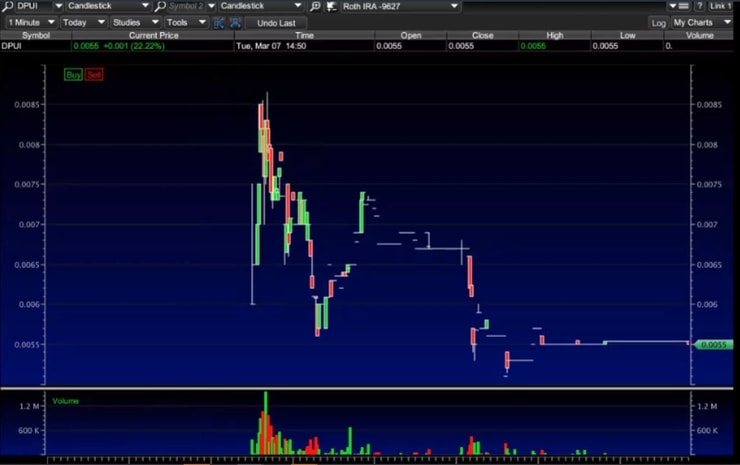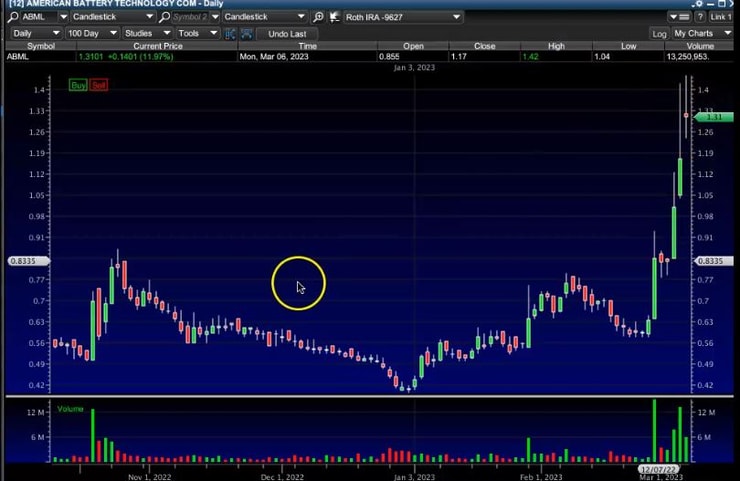“Never let the fear of striking out keep you from the game.” – Babe Ruth.
In trading, they tell us to have no emotion… If you take a bad loss, you must erase it from your memory and move on.
What a load of nonsense.
Emotions are what make us human, and as much as we would like to remove them from trading, it’s impossible.
I say embrace it.
Forgetting your losses is another piece of bad advice I hear.
If you don’t learn from your mistakes, you’re bound to repeat them.
It’s okay to be frustrated when things aren’t working out.
However, it’s not okay to not do anything about it.
Over the last three years, I’ve followed a mentality that’s helped me make over $2M in trading profits.
And it’s exactly how I teach my students to be.
In fact, if you trade a small account, I think it’s the best mindset to have.
Table of Contents
Taking A Few Positives Away From Every Trade

I haven’t been exactly lighting it up lately.
Of course, it’s frustrating.
But one thing I’m not doing is ignoring my bad trades and sweeping them under the rug.
In fact, I review all my trades for my challenge students.
It not only helps me, but it helps them. Better to learn from my mistakes than lose money on yours.
I do the following when I review my trades:
- Go over my thesis. What motivated me to get into this trade?
- Review the charts. I typically like to look at the history of a stock and see what type of moves it had in the past, whether it was a former spiker, and how it reacts to catalysts.
- Review my execution. Did I rush into the trade? Manage the trade correctly? Did I size up too much or too little? Did I take profits too quickly?
- Rate my overall performance. Did I have the right idea but poor execution? Was my idea wrong?
While reviewing trades in which you lost money is not fun, it will make you a better trader in the long run.
I’m +20 years into trading, and I’ve made over $7.4 million in profits. And from time to time, I will make dumb mistakes.
That’s why it blows my mind when I hear from traders they don’t have time to review their trades. Or they don’t think it’s worth it.
If you look at professional sports teams, they spend a good chunk of their practice time studying film and preparing.
Here’s a quick look at some recent mistakes I’ve made, and hopefully, you can learn something from them.
Discount Print USA (DPIU)
This was a sub-penny spiker that I believed was a decent catalyst.
However, it didn’t have a strong history of reacting well to press releases, and the overall price action was weak.
This was a trade I probably should have avoided entirely.
On the other hand, I was able to follow my number #1 rule, and that’s cutting losses quickly.
American Battery Technology Company (ABML)
This stock has been strong over the last couple of months. Typically I look to buy stocks in an uptrend on dips. It had a significant dip from its highs.
However, it wasn’t moving when much when I was in it. And instead of hanging around, I decided to exit for a small loss.
After reviewing it, I saw that my thesis was correct, and the stock did bounce. I could have been more patient. So for this trade, I had the right idea but poor execution.
Nonetheless, I stay true to my number #1 rule, cutting losses quickly.
I’ve lost over 1,700 trades in my career.
But I manage to win on more than 3 out of 4 trades I take.
So let me share with you what I learned from a winning trade I recently had.
More Breaking News
- Breaking News: Ondas Navigates Market with Enhanced Strategy
- Cipher Mining Hikes Price Target Amidst Bold Strategic Moves
- Hims & Hers Health Faces Legal Storm Amid FDA and Novo Nordisk Scrutiny
- MNTS Stock Surges Amid Strategic Expansion and Financial Insights
Cecors Inc. (CEOS)
This was a stock that had a strong uptrend on the daily chart. And one, I was thinking about getting in on a dip. I stayed extremely patient and waited for an extreme panic, which actually happened, allowing me to grab shares near the absolute lows.
I was able to flip this one for 14.5% profit. (I risked $4,080 in capital).
The Mindset That Serves Me Best

I don’t need to trade anymore.
In fact, all of the profits I make get donated to charity.
And that’s the mindset I try to have to go into each trading session.
Trade like you’re retired…and only come back unless you see an opportunity so amazing…you’ll want to kick yourself for missing it.
In other words, be extremely patient and stay disciplined. And only take the absolute best setups.
Of course, I sometimes mess up. But overall, my track record speaks for itself.
It’s something I teach to all my millionaire students.
And one I invite you to try.






Leave a reply